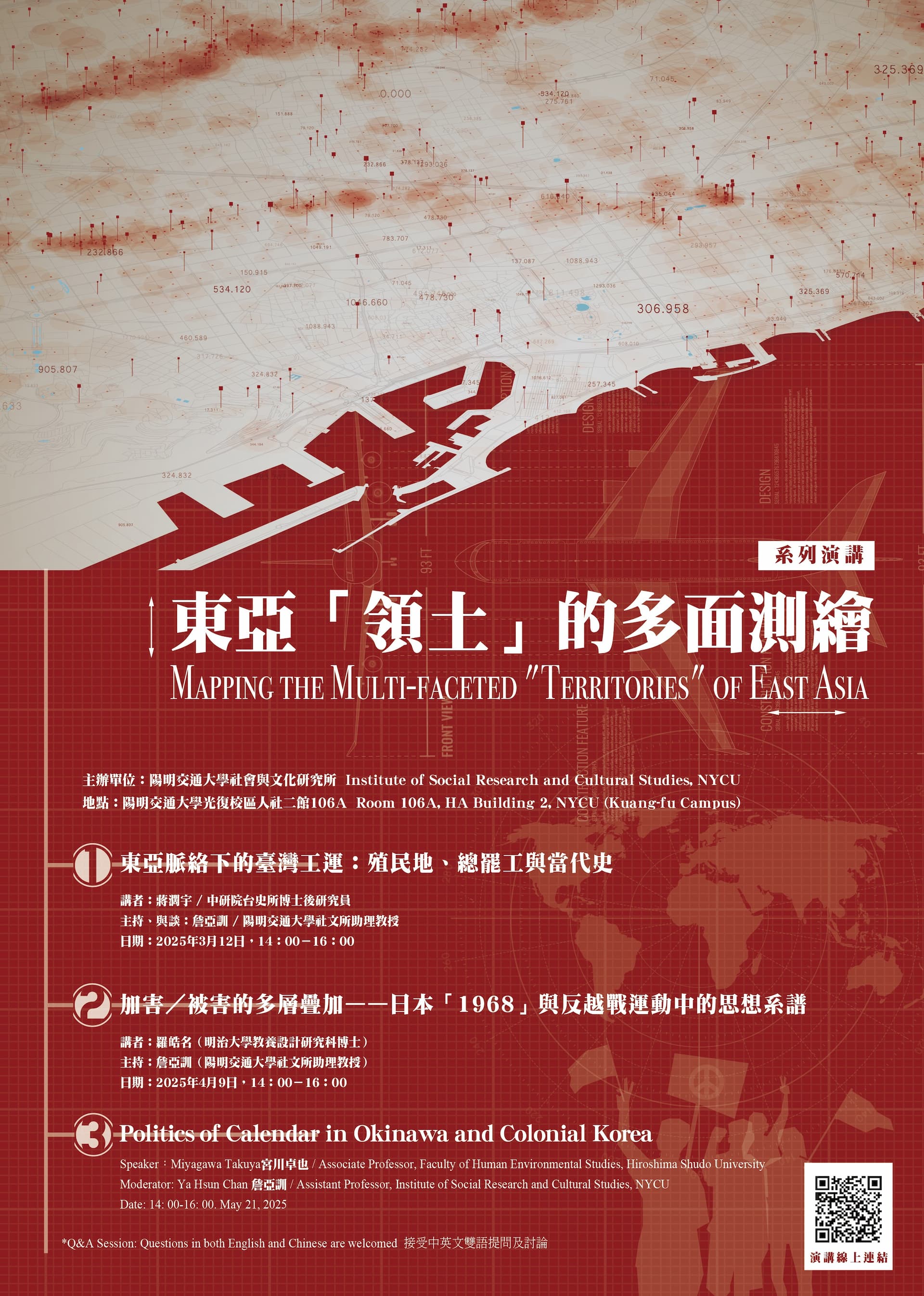2025年度系列演講:東亞「領土」的多面測繪
2025 Academic Lecture Series: Mapping the Multi-faceted "Territories" of East Asia
3. Politics of Calendar in Okinawa and Colonial Korea
Speaker:Prof. Miyagawa Takuya宮川卓也 (Associate Professor, Faculty of Human Environmental Studies, Hiroshima Shudo University)
Date: 14: 00-16: 00. May 21, 2025.
Venue: Room 106A, HA Building 2, NYCU (Kuang-fu Campus).
Moderator: Ya Hsun Chan 詹亞訓 (Assistant Professor, Institute of Social Research and Cultural Studies, NYCU)
Q&A Session: Questions in both English and Chinese are welcomed(接受中英文雙語提問及討論)
✢Abstract
In East Asia, except for Japan, many annual events, including the New Year, are still celebrated according to the lunisolar calendar. In 1873, the Meiji government adopted the solar (Gregorian) calendar and officially replaced the traditional lunisolar system. This change was later enforced in colonies of Imperial Japan. However, the sudden shift from a long-established timekeeping system caused significant difficulties, even for the Japanese people. In the colonies, the introduction of the new calendar faced stronger resistance, leading to confusion, opposition, and social unrest. This conflict was particularly evident in these regions, where the Gregorian calendar –viewed as a symbol of modern scientific progress – clashed with the lunisolar calendar, which represented deep-rooted cultural and civilizational traditions. This lecture explores the political and social impact of calendar reform in Okinawa (Ryukyu, a domestic colony) and in colonial Korea. Through the analysis on two cases, this study will examine how the politics of calendar manifested itself between imperial governments and the people in the modern era.
✢Speaker
Miyagawa Takuya. After graduating from Kobe University in early 2006, I pursued a master’s degree in the history of science at Seoul National University in South Korea. My master’s thesis focused on meteorology in colonial Korea. I then continued my studies in the doctoral program, where I spent seven years expanding my research to examine meteorology within the broader context of the Japanese Empire. After earning my PhD in early 2015, I moved to Tokyo for a postdoctoral position, where I broadened my research interests to include disaster science and calendar-making in modern East Asia. Since 2018, I have been based in Hiroshima, where I am currently preparing to publish my dissertation in Japanese, with publication scheduled for the end of this year.
